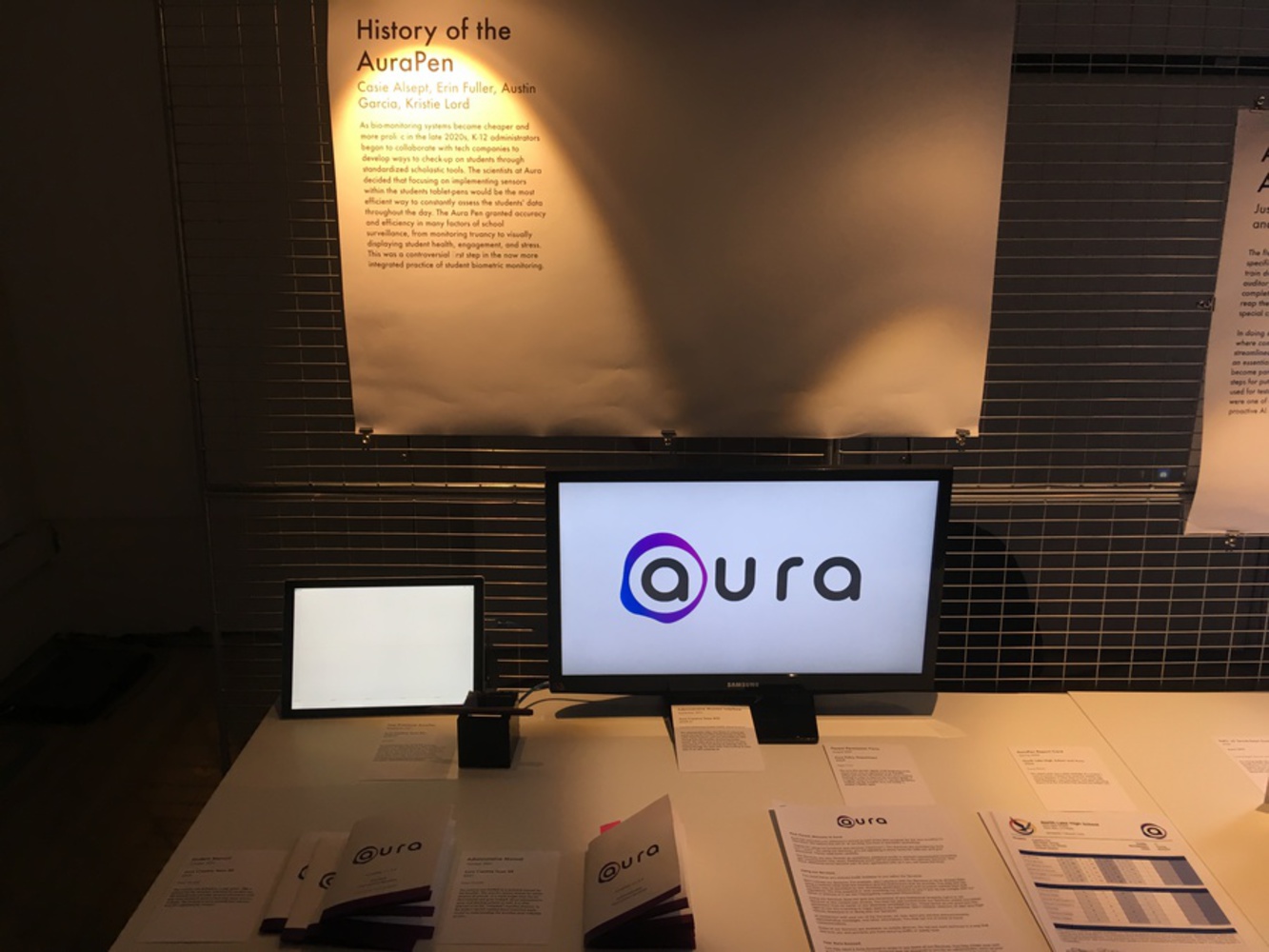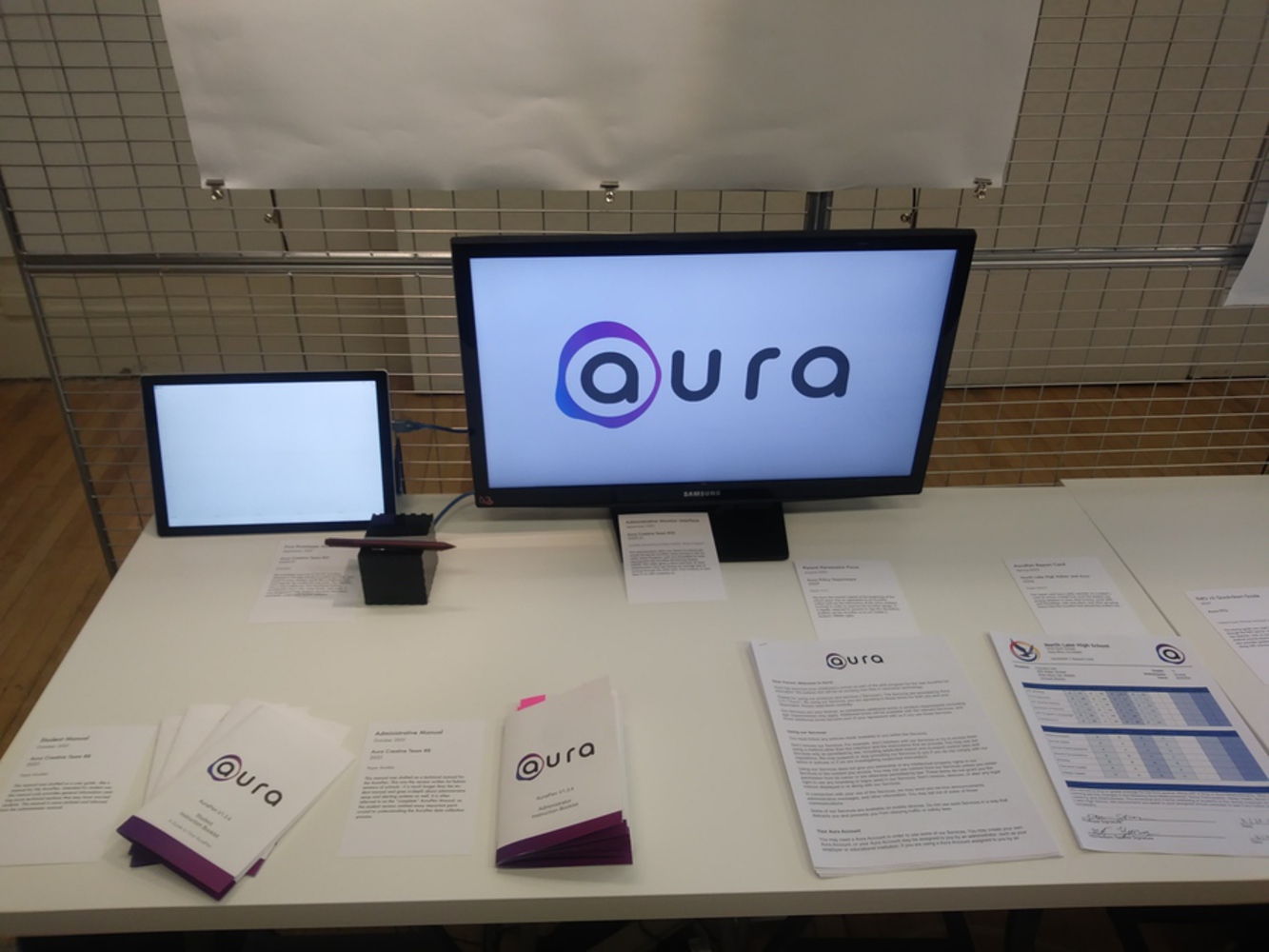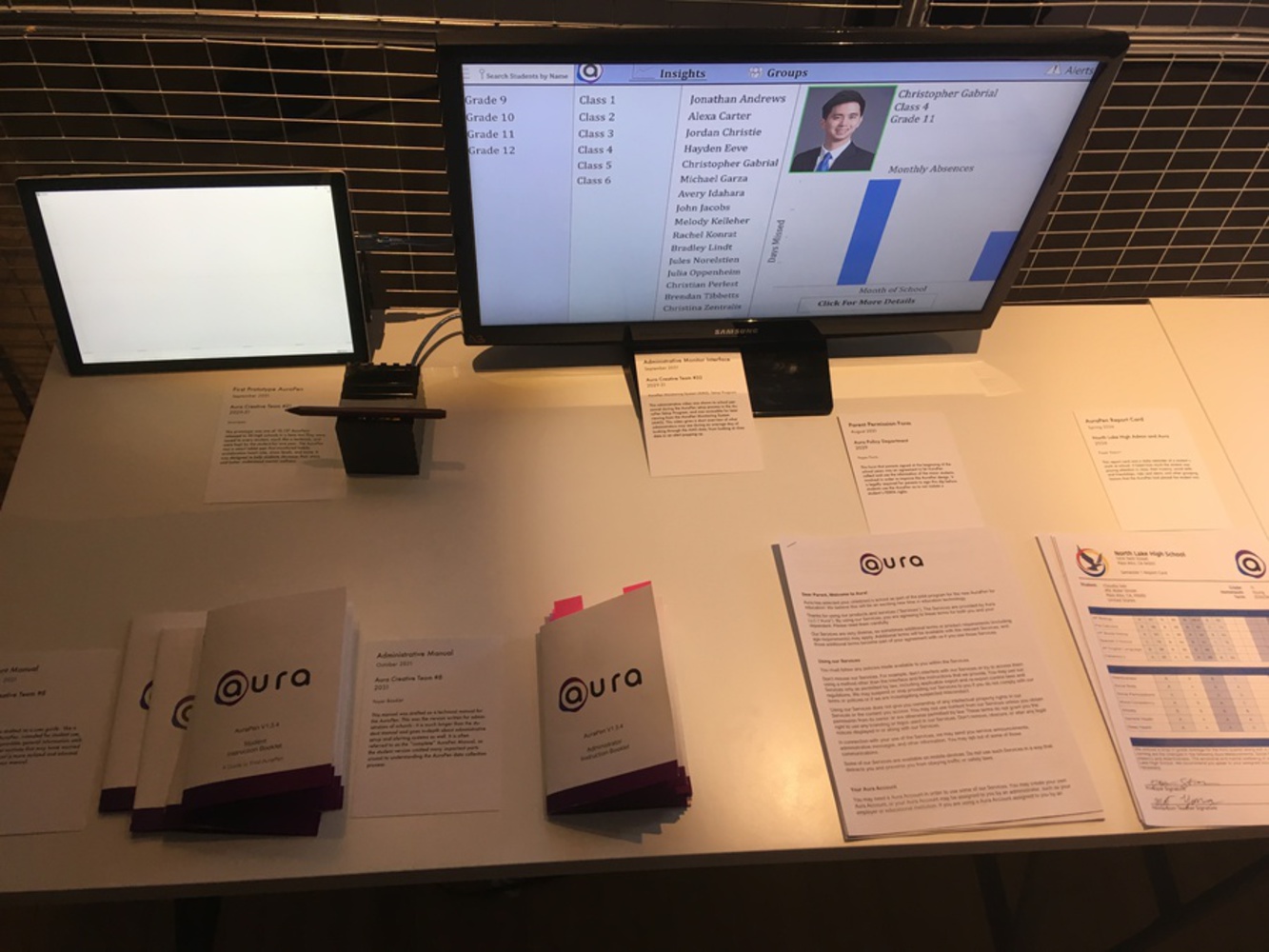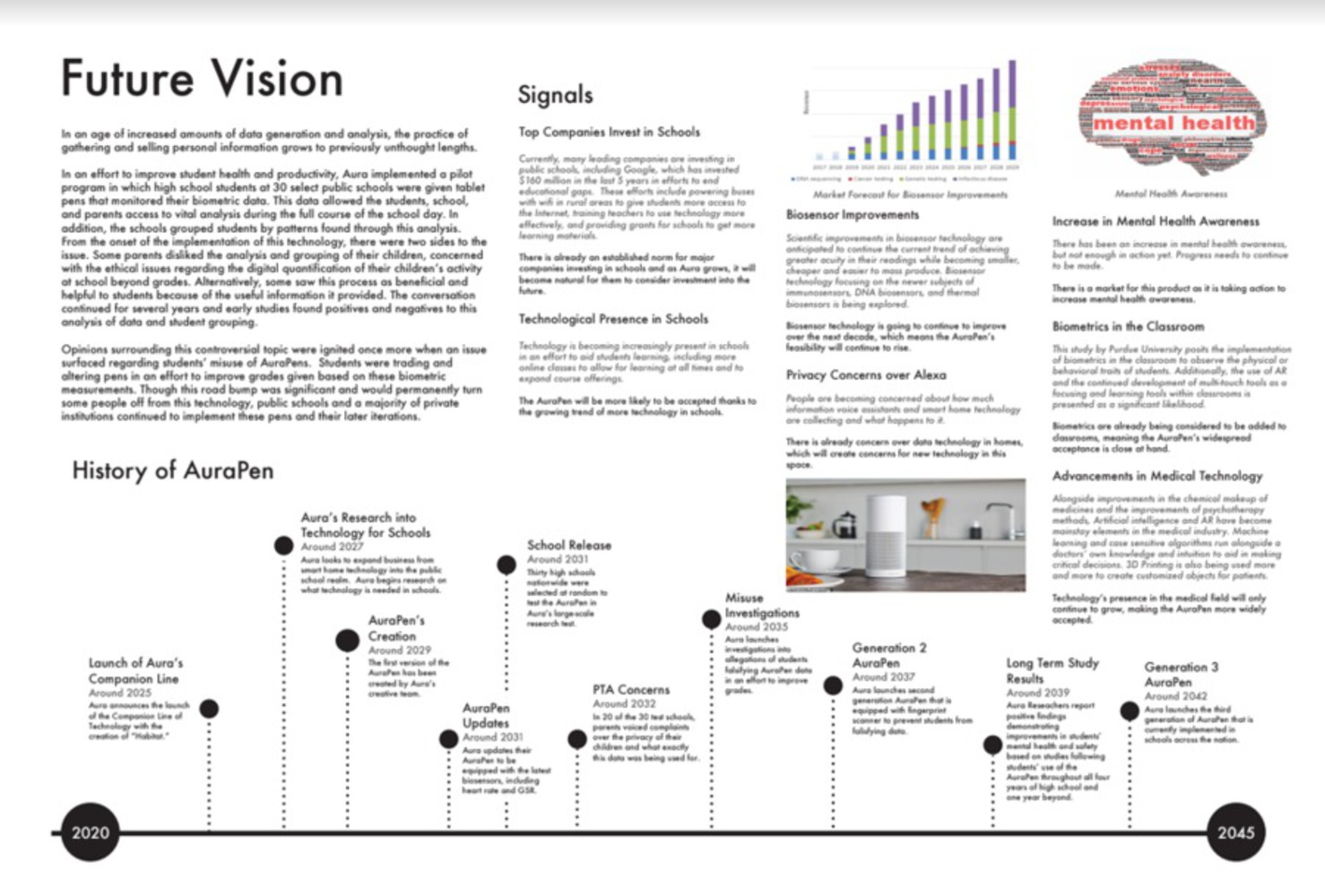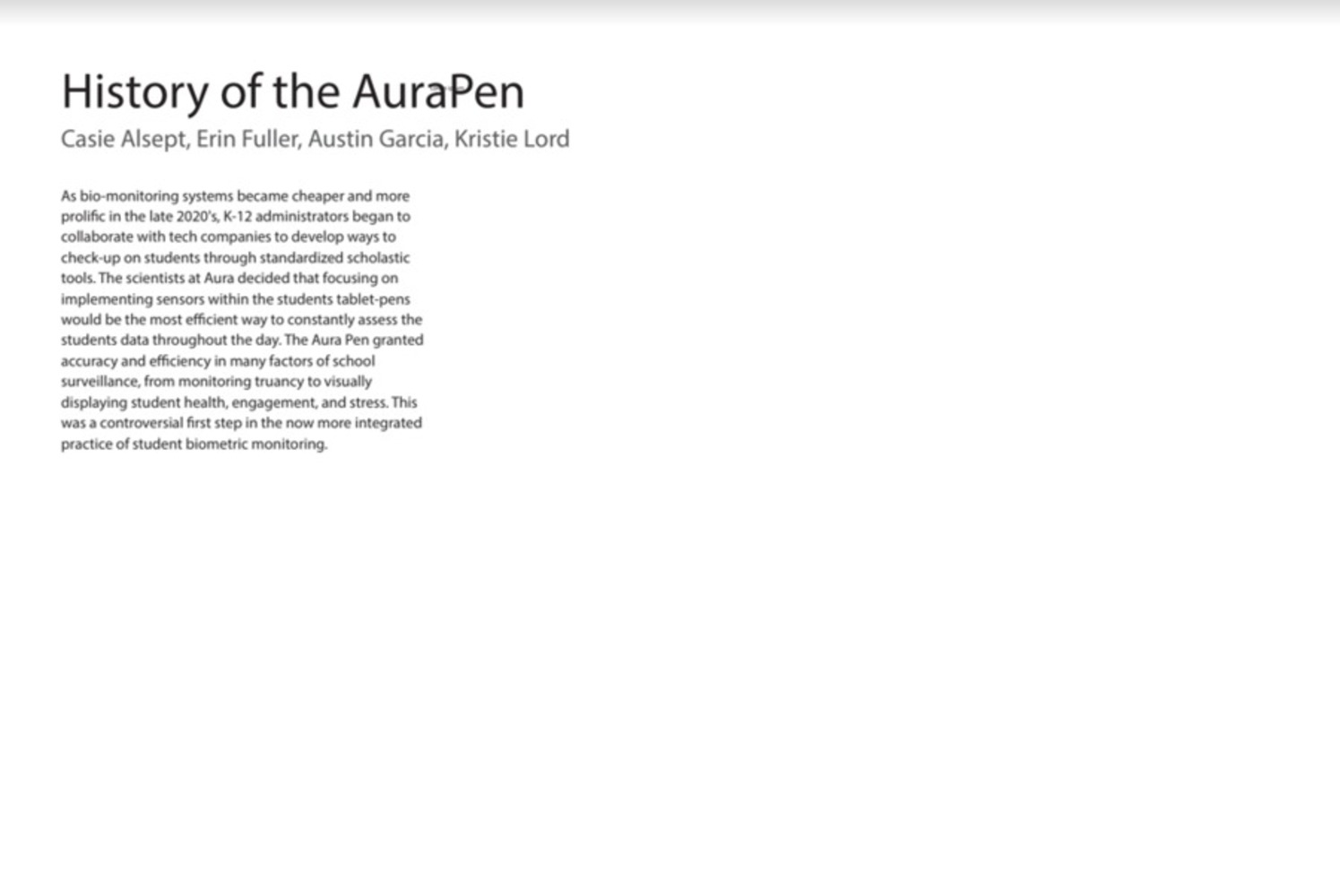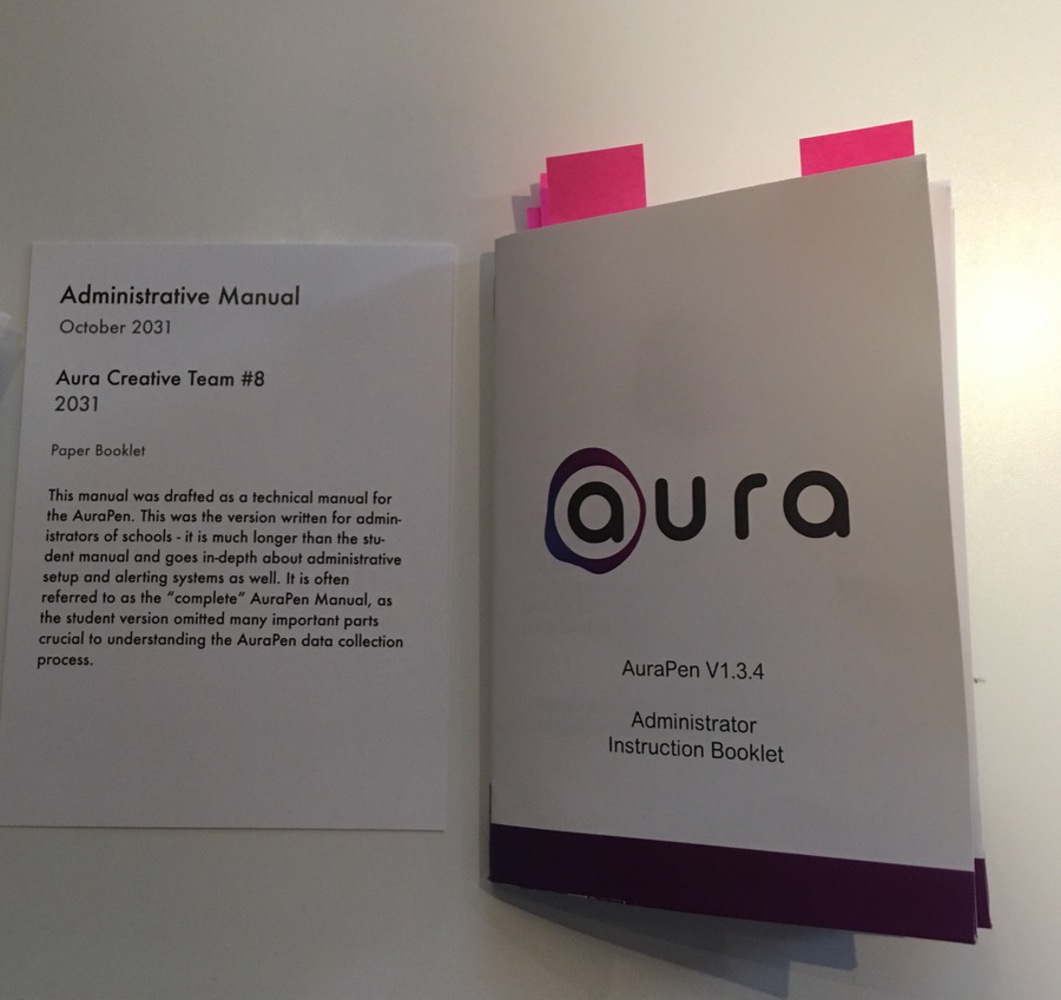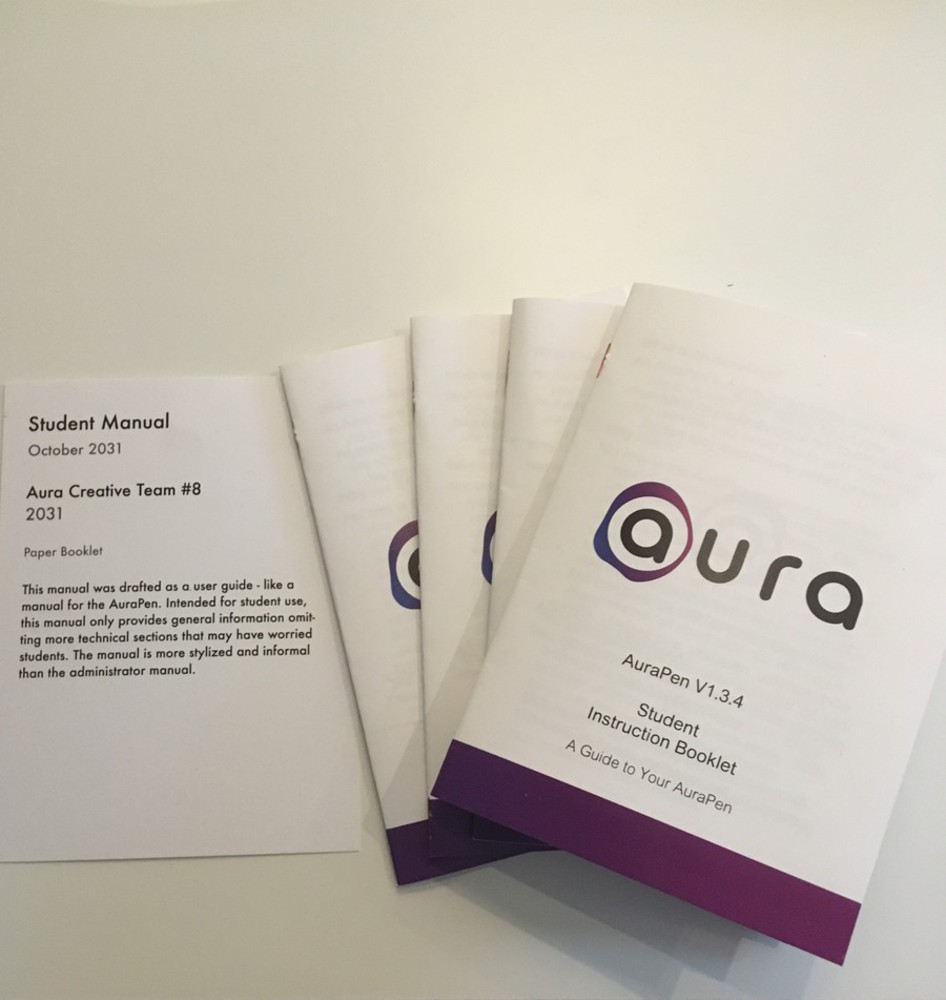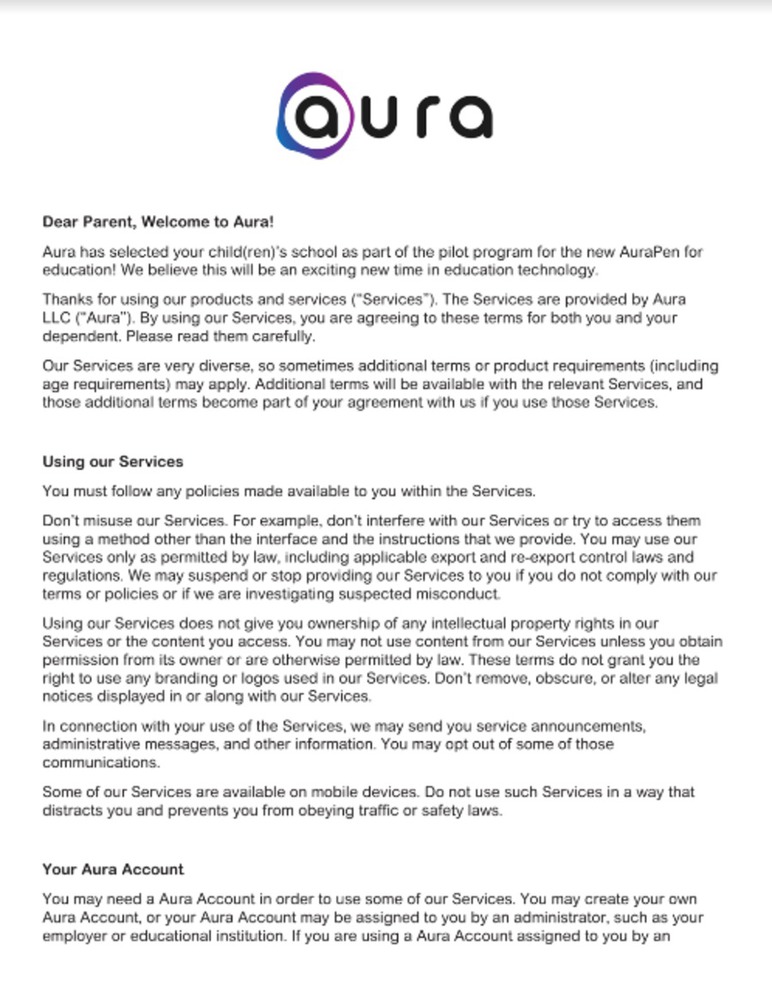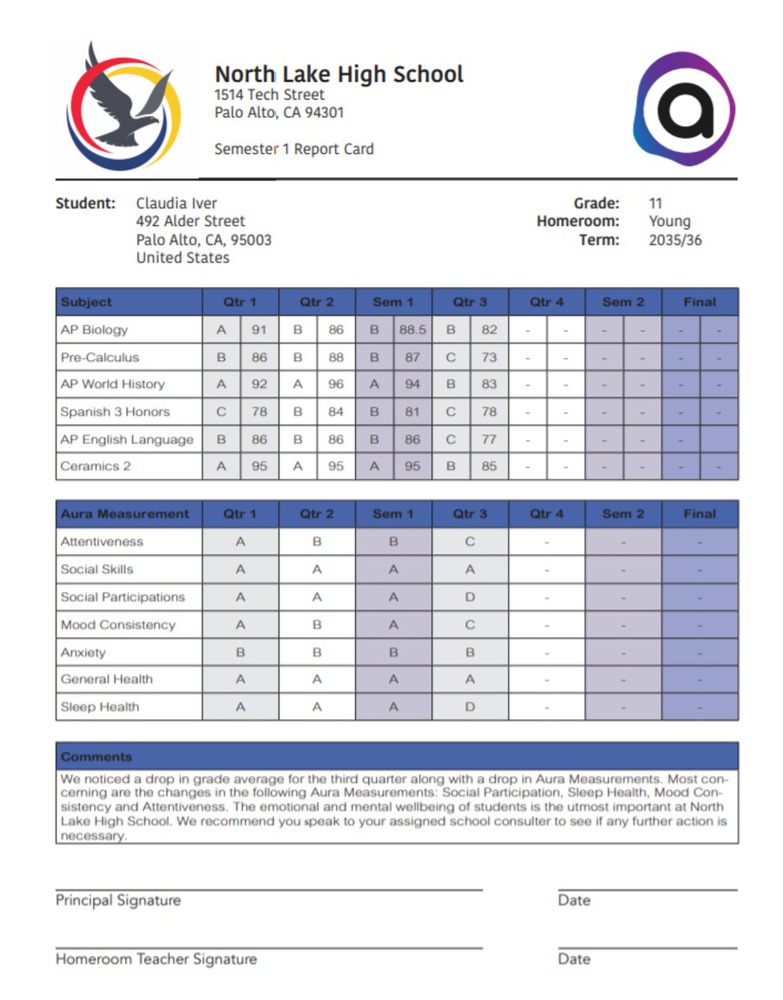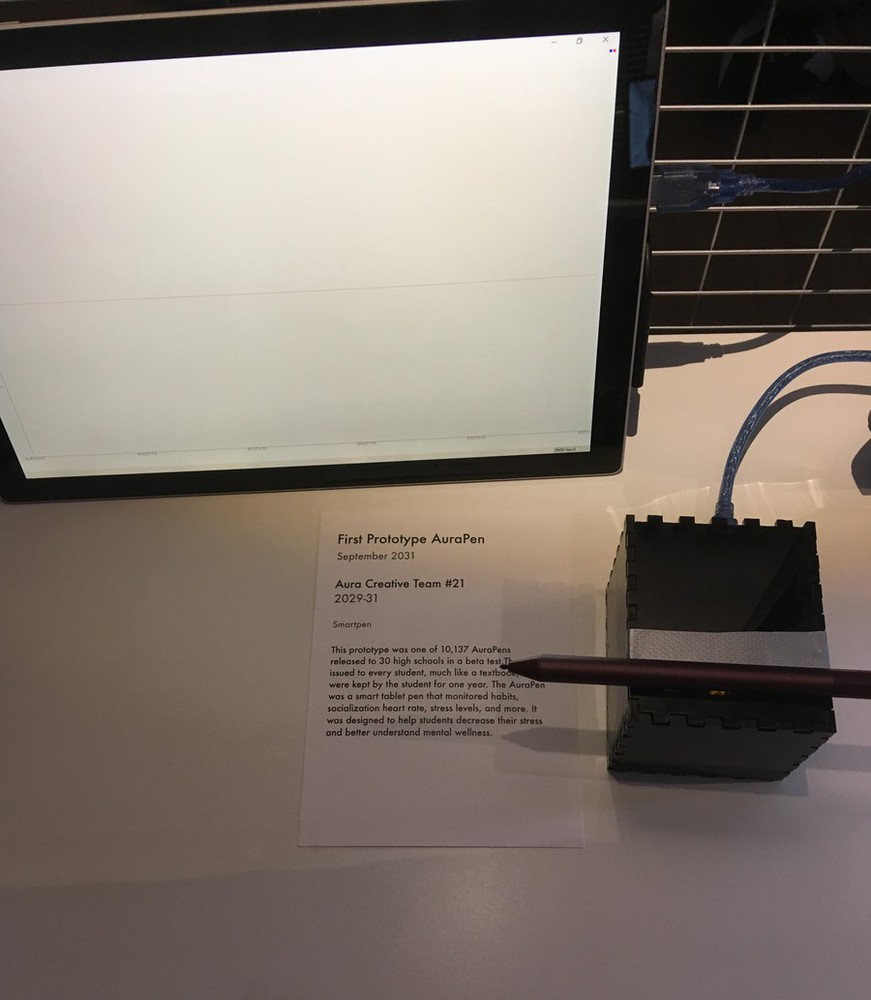Intention
In an effort to improve student health and productivity, Aura implemented a pilot program in which high school students at 30 select public schools were given tablet pens that monitored their biometric data. This data allowed the students, school, and parents access to student mental health analysis during the full course of the school day. In addition, the schools grouped students by patterns found through this analysis and issued alerts if troubling patterns were found.
From the onset of the implementation of this technology, there were two sides to the issue. Some parents disliked the analysis and grouping of their children, concerned with the ethical issues regarding the digital quantification of their children’s activity at school beyond grades. Alternatively, some saw this process as beneficial and helpful to students because of the useful information it provided. The conversation continued for several years and early studies found positives and negatives to this analysis of data and student grouping.
In creating this project, our group hoped to raise questions about the future of technology. When do people decide enough is enough for collecting data? Who should have access to this data? Even with the best intention of ensuring student's safety and creating a better support system, is it alright to monitor students?
